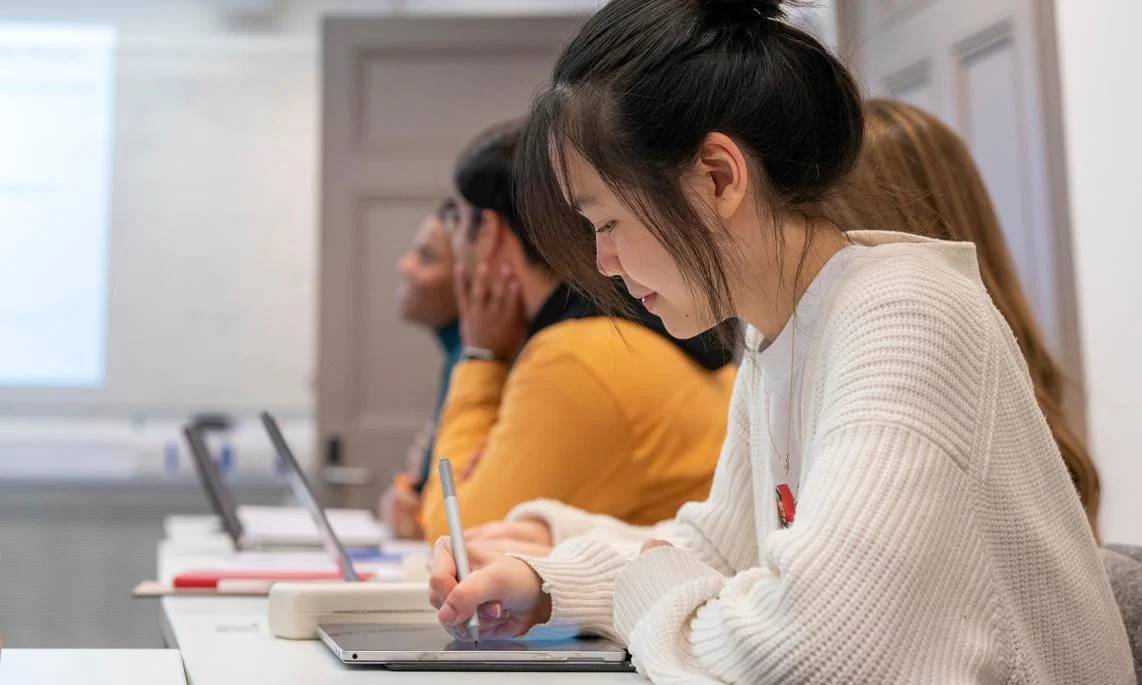Overview
Introduction
The MSc in Philosophy of Economics and the Social Sciences offers a unique opportunity to pursue a critical understanding of the methods of economics and other social sciences, alongside ethical questions about the use of science in policy, the economy, and civil society.
The LSE is widely recognised as the world’s leading social science university, and our department excels at philosophical research that is continuous with the social and natural sciences and is socially relevant. Teachers on the programme conduct pathbreaking research at the intersection of philosophy and a range of social sciences, including behavioural science, cognitive science, economics, health policy, data science, and politics. Courses that you can take as part of the degree address a wide range of questions in the field, including:
- What forms of explanation and understanding are possible in the social sciences, and how secure and objective is the knowledge they provide?
- What are the strengths and weaknesses of common methods in economics and parts of political science, eg, modelling individuals as perfectly rational individuals who maximize the expected satisfaction of their preferences?How do they compare with other social sciences methods, such as those that focus on understanding people’s outlook, cultural identity, and the norms they wish to follow?
- What is the nature of social categories such as gender and race, and what roles do these categories play in shaping the social world and structuring human lives? Should we rethink these categories?
- How should we morally evaluate societies, both in terms of the distribution of opportunities and well-being they provide and in terms of the nature of the interpersonal relationships they engender?
- What are the merits and drawbacks of key forms of social organization, including markets, democratic deliberation, and top down hierarchies? How are these forms of social organization, and their impacts, changing due to new technologies, including Artificial Intelligence?
- What should the role of social sciences and the expertise they provide be in public debate and policy-making? How should scientific uncertainty and disagreement be handled in the public forum?
Preliminary readings
- J Baggini and P S Fosl The philosopher's toolkit: a compendium of philosophical concepts and methods (Wiley Blackwell, 2010)
- R Bradley Decision theory with a human face (Cambridge, 2017) (suitable for those with a background in decision theory).
- N Cartwright and E Montuschi Philosophy of social science: A new introduction (Oxford, 2014)
- D Hausman The inexact and separate science of economics, second edition (Cambridge, 2023)
- D Hausman The philosophy of economics: An anthology (Cambridge, 2008)
- D Hausman, M McPherson, D Satz Economic analysis, moral philosophy and public policy, third edition (2017)
- H Kincaid The Oxford handbook of philosophy of social science (Oxford, 2012)
- M Martin and L C McIntyre Reading in the philosophy of social science (Cambridge, 1994)
- D Steel and F Guala The philosophy of social science reader (Routledge, 2010)
Entry requirements
Upper second class honours (2:1) degree or equivalent in any discipline. You should also demonstrate a considered interest in the areas covered by the MSc.
Please select your country from the dropdown list below to find out the entry requirements that apply to you.
Overseas
English language requirements
The English language requirement for this programme is Higher. Read more about our English language requirements.
Competition for places at LSE is strong. So, even if you meet the minimum entry requirements, this doesn't guarantee you an offer of a place.
However, please don’t feel deterred from applying – we want to hear from all suitably qualified students. Think carefully about how you can put together the strongest possible application to help you stand out.
Programme content
Year 1
You'll choose philosophy course options from across the department for a total of three units. Out of this three units, subject to approval from the Programme Director, you may take up to one unit from options outside the department. In addition, you'll take part in the non-assessed dissertation seminar. This will prepare you to complete your dissertation of 10,000 words, which will be on a topic in the philosophy of economics and/or other social sciences, broadly construed. The dissertation constitutes a further full unit, for a programme total of four units.
Why study with us
Read testimonials from students who have completed our MSc programmes. Find out about their experience of the programme, what they found most valuable and how it has helped to develop their career to date.
Meet the department
Founded by Sir Karl Popper in 1946, the Department of Philosophy, Logic and Scientific Method is consistently ranked among the top places in the world to study philosophy.
Our research and teaching embody LSE’s long tradition of analytic, interdisciplinary and socially engaged philosophy.
We have particular strengths in:
- the philosophy of natural and social sciences
- logic
- moral and political philosophy
- epistemology
- decision and game theory
- social choice.
Some of the world’s leading thinkers and social reformers have taught or studied at LSE – including Beatrice Webb, Bertrand Russell and, of course, Karl Popper. Today, we offer a wide range of undergraduate and postgraduate programmes, attracting high-calibre students from across the globe.
Located in the heart of London, LSE provides one of the most exciting places in the world to study for your philosophy degree. We were ranked first in the UK in the Good University Guide 2026 and second in the world in the QS World University Rankings 2025.
Our research is internationally renowned. We were ranked joint third overall in the UK for the quality and impact of our research in the most recent Research Excellence Framework (2021).
LSE has some of the best outcomes for philosophy graduates in the UK. Our graduates find rewarding and interesting careers in government, the public sector, education, teaching, NGOs and charities, and research.
Learn more about our undergraduate, MSc and PhD programmes and research.
Department of Philosophy, Logic and Scientific Method

Why LSE
University of the Year 2025 and 1st in the UK in 2025 and 2026
Times and The Sunday Times - Good University Guide 2025 and 20261st in London for the 14th year running
The Complete University Guide - University League Tables 20266th in the world for the study of social sciences and management
QS World University Rankings by Subject 20256th in the world for leading the way in social and environmental sustainability
QS World University Rankings: Sustainability 2026Your application
Overview
We welcome applications from all suitably qualified prospective students. At LSE, we want to recruit students with the best academic merit, potential and motivation, irrespective of background.
We carefully consider each application and take into account all the information included on your application form, such as your:
- academic achievement (including predicted and achieved grades)
- statement of academic purpose
- two academic references
- CV.
See further information on supporting documents.
You may need to provide evidence of your English language proficiency. See our English language requirements.
When to apply
Applications for this programme are considered on a rolling basis. This means that applications will close once the programme is full.
There is no fixed deadline. However, if you’d like to be considered for any funding opportunities, you must submit your application (and all supporting documents) by the funding deadline. See the fees and funding section below for more details.
Fees and funding
The table of fees shows the latest tuition fees for all programmes.
You're charged a fee for your programme. At LSE, your tuition fee covers registration and examination fees payable to the School, lectures, classes and individual supervision, lectures given at other colleges under intercollegiate arrangements and, under current arrangements, membership of the Students' Union. It doesn't cover living costs or travel or fieldwork.
Home
Home student fee (2026/27)
For this programme, the tuition fee is different for home and overseas students depending on their fee status.
Overseas
Overseas student fee (2026/27)
For this programme, the tuition fee is different for home and overseas students depending on their fee status.
Learning and assessment
How you learn
How you're assessed
All taught courses are required to include formative coursework which is unassessed. It's designed to help prepare you for summative assessment which counts towards the course mark and to the degree award. LSE uses a range of formative assessment, such as essays, problem sets, case studies, reports, quizzes, mock exams, team presentations and many others. Summative assessment may be conducted during the course or by final examination at the end of the course. An indication of the formative coursework and summative assessment for each course can be found in the relevant course guide.
Graduate destinations
Overview
Past programme graduates have gone on to a wide variety of careers, ranging from law, forming their own start-up, working in the City and working at Google. We have a very good record of students entering excellent PhD programmes.
Further information on graduate destinations for this programme
Top 5 sectors our students work in:
Career support
From CV workshops through to careers fairs, LSE offers lots of information and support to help you make that all-important step from education into work.
Many of the UK’s top employers give careers presentations at the School during the year and there are numerous workshops covering topics such as job hunting, managing interviews, writing a cover letter and using LinkedIn.
See LSE Careers for further details.
